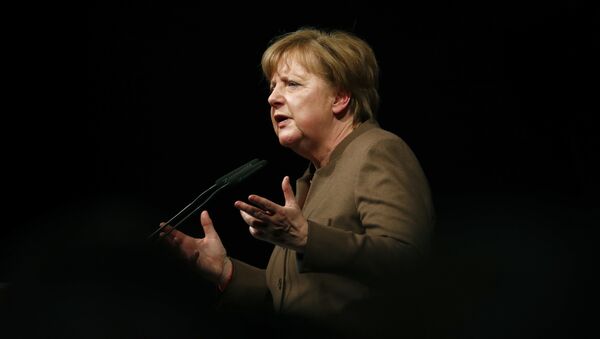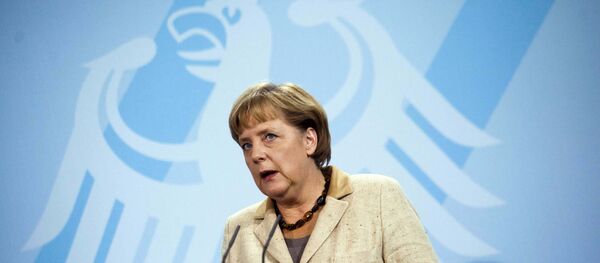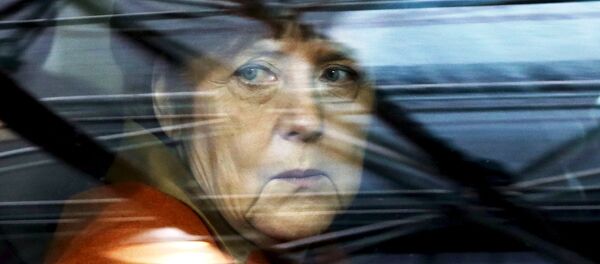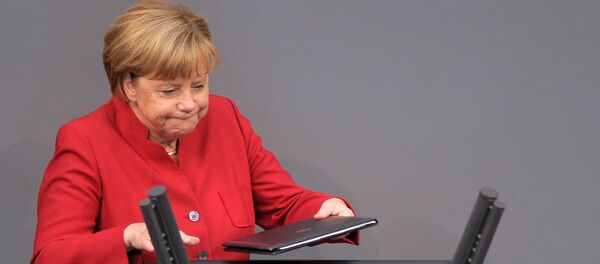Their remarks came after Merkel's conservative Christian Democratic Union (CDU) came in third in her home state of Mecklenburg-Vorpommern elections with 19 percent of the vote; it was beaten by both the populist right-wing Alternative for Germany (AfD) party, which won 20.8 percent, and the ruling Social Democrats (SPD), which obtained 30.6 percent.
In an interview with Spiegel Online on Thursday, Ralf Stegner, deputy president of the center-left SPD, minced no words when commenting on Merkel's poor election results. At the federal level, the SPD is in a so-called "grand coalition" with the Christian Democrats and the CDU's Bavarian sister party, the Christian Social Union (CSU).
"Angela Merkel has clearly reached her peak," he said, citing her "disastrous regional election" which he said may force Merkel to "disqualify herself" from next year's election race, "stepping aside in favor of Horst Seehofer, the head of the CSU and Minister President of the German state of Bavaria."
According to Stegner, "historically, the CDU has always been pitiless towards chancellors when it had the impression that there could be a massive loss of seats."
Seehofer himself has repeatedly criticized Merkel over her migration policy, and in a recent interview with the German newspaper Suddeutsche Zeitung he also touched upon the matter.
He said that his "repeated calls for a change of course" had been ignored in the run-up to the Sunday election, which he said had finally led to "disastrous" results.
Also criticizing Merkel was German Vice Chancellor Sigmar Gabriel, who said that the grand coalition "underestimated" the challenge of integrating asylum seekers in Germany.
"It is not enough when she [Angela Merkel] constantly says ‘we will manage’. She must instead create the conditions under which we'll be able to manage [the refugee situation] well, but the CDU /CSU have always… blocked such efforts," Gabriel said.
Merkel, for her part, took the blame for her party's election defeat, saying that "I am the head of the party and chancellor … naturally I am also responsible." At the same time, she strongly defended her decision to accept more than one million refugees in Germany last year.
#Germany's Chancellor #Merkel faces defeat in local elections due to her #migrants' policies pic.twitter.com/YJHVGQjLlj
— Newscast Pratyaksha (@HindiPratyaksha) 7 сентября 2016 г.
Nico Fried, a commentator with the German daily Suddeutsche Zeitung, said in turn that Merkel only has two realistic courses of action to choose from following her party's defeat on Sunday, and both of these would lead to "emergency scenarios."
The first option would be for Merkel to stick to her policy at any cost, because any change will be perceived by Merkel's opponents as a tactical maneuver, according to him. The second option is for Merkel to simply resign, which would certainly be viewed by Merkel's opponents as her political surrender, Fried said.
For his part, Jon Worth, political consultant and EU policy specialist, told Sputnik that Merkel is "not as strong as she was, but she still is immensely strong and broadly trusted within Germany."
"There are no other viable successors to her within the Christian Democratic Party. Her party is still ahead in the polls despite the lessening of support for Merkel as an individual. She knows her coalition partners, the SPD, are not doing particularly well either. So, overall, she is still in a very strong position," he said.
Meanwhile, half of those polled for newspaper Welt am Sonntag said Merkel should not stand for a fourth consecutive term in next year's election. Her approval rating has sunk to a five-year-low, at 45 percent.





